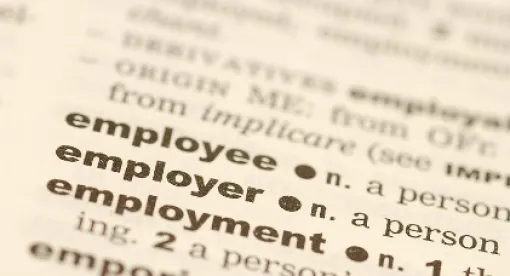In the recent election, San Jose voters passed a voter initiative creating the “Opportunity to Work” ordinance. The purpose of the ordinance, which will become effective on March 13, 2017, is to promote full-time jobs and to prevent San Jose employers from choosing to employ workers on a part-time basis only as a means of reducing costs of providing health insurance or other benefits. The ordinance requires San Jose employers to offer hours of work to existing qualified part-time employees before hiring new staff, to keep records of its compliance with the ordinance, and to refrain from retaliation against any employee who exercises rights under the ordinance.
The Opportunity to Work ordinance requires that before hiring additional employees or subcontractors, an employer must offer additional hours of work to existing employees with the skills and experience to perform the work. Although it is not explicit, the intent of the ordinance is to require employers to offer any additional hours, including hours worked by departing employees, to existing part-time workers before hiring new workers or replacing departing workers. Whether an employee is qualified to be offered the additional hours is determined by the employer’s “good faith and reasonable judgment.” The employer is also required to use a “transparent and nondiscriminatory process” to distribute the hours of work among those existing employees. The ordinance applies to all San Jose employers, including corporate officers or executives, but exempts businesses with 35 or fewer employees. For chains or franchise-owned businesses, all employees of the chain or of all business owned by the franchisor, in or out of San Jose, are counted to determine whether the small business exception applies.
The Opportunity to Work ordinance does not require an employer to offer an employee work hours if the acceptance of such offer would require payment of overtime. Beyond this limitation, however, the ordinance does not contain any specific guidance on how an employer should communicate offers of additional hours to its employees, how long an employee will have to accept any such offer, or the method that should be used to distribute the available hours. The ordinance will be enforced by the City’s Office of Equality Assurance (“Office”), which will publish a Notice of Employee Rights that all employers will be required to post. In a recent article in the San Jose Mercury News, the head of the Office of Equality Assurance, Nina Grayson, stated that the Office is working on templates for offers of additional work to part-time employees, and on FAQs, pamphlets, and the required poster. In addition, she intends to reach out to chambers of commerce and business groups to provide education on the provision prior to its enforcement date of March 13.
Under the provisions of the ordinance, employers must document and retain records of the offers of additional hours of work to existing employees made prior to each new hire, which implies that such offers must be memorialized in writing in some form. In addition, employers are required to retain all employee work schedules and any other records the Office requires to demonstrate compliance.
Employees will have the right to report alleged violations to the Office. Upon receipt of a Complaint, the Office will investigate the complaint and first attempt to resolve any issue with the employer. In addition, the Office or an aggrieved employee may bring a civil action in court, and the Office may issue an Administrative Citation or seek a Compliance Order. The City is authorized to impose a fine of $50 per day plus back wages and interest.
The ordinance authorizes the City to issue guidelines to encourage employers to create training opportunities to provide employees with the skills and experience to perform work for which the employer can be expected to have a future need. Further, the Ordinance allows employers to seek a hardship exemption for up to twelve months, by showing that the employer has taken reasonable steps to comply with the Ordinance, and that full and immediate compliance would be impracticable, impossible, or futile.
Since 2014, San Francisco has had a similar requirement applicable to formula retail establishments only. Regulatory guidance published by the City of San Francisco is clear that employers must offer the hours of a departing employee to existing employees. In addition, the San Francisco ordinance sets forth more specific requirements than the San Jose Ordinance. For example, the San Francisco ordinance is clear that employers need to offer additional work only where the employee is qualified and the additional work is the same or similar to work the employee(s) have performed for the employer, that employers must make such offers in writing or by a conspicuous written or electronic notice, and that employees have 72 hours to accept offers of additional work. In putting together its guidelines, San Jose may look to some or all of these specific procedures for guidance, but it is premature to assume that the procedures will be identical to those permitted and/or mandated in San Francisco.
These ordinances may be just a harbinger of similar laws on the horizon. This week, four California lawmakers, including two San Jose Assembly members, introduced an “Opportunity to Work” bill in the California Assembly that would apply to employers across the state. Sheppard Mullin will continue to monitor these developments and provide updates on the status of the City of San Jose in providing guidance to employers who will need to comply with this law.



 />i
/>i

